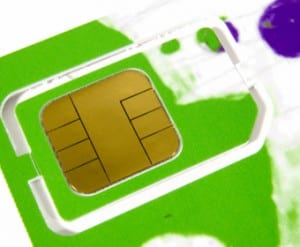Never mind the handset
September 16, 2008


sim
Never Mind The Handset
SIM-only tariffs, where customers are encouraged to continue using their existing phone in return for cut price usage rates, are growing in popularity with operators looking to manage customer acquisition costs.
MVNO Virgin Mobile recently announced that it leads the SIM-only sector of the UK mobile market. Citing research from analyst firm GfK, the carrier claimed a market share of 29.5 per cent.
SIM-only, where customers provide their own handset in return for lower prices on monthly text and voice bundles and the freedom of a 30-day notice period, is the fastest growing part of the UK mobile market, according to Virgin. The firm’s share grew by ten per cent during May this year.
The popularity of SIM-only in the UK market reflects current financial conditions, with some consumers now motivated more by cost consciousness than the lure of a new handset. And the carriers offering these deals trumpet the importance of greater choice and flexibility in their offering. “[SIM-only] is popular and confirms our belief that it adds another choice for customers who want the assurance of having a 30-day non-commitment plan that rolls from month to month,” said a spokesperson for Vodafone UK.
But there is more to it than greater strength in depth across the product portfolio. The most significant cost incurred by carriers in the process of customer acquisition derives from the subsidies they offer on handsets, which can be anything up to £200. SIM-only offerings neatly sidestep this issue, generating a substantial saving for the operator. “We’re finding that a lot of customers are happy with their existing phone and would rather make a saving on the bundles,” said Annie Brooks, head of proposition at Virgin Mobile.
Brooks describes the popularity of SIM-only as “an explosion”, beginning late in 2007. She estimates that, across all operators in the UK, 100,000 SIM-only connections are being made each month. By way of an added incentive, Virgin offers its SIM-only subscribers a £10 upgrade allowance for every £100 they spend on monthly charges. Capped at £100, this allowance can be traded in for a new handset when the customer feels like it is time for a change.
This may offer a win-win to operator and consumer, but it’s not good news for the handset vendors. “If you’re selling a SIM-only deal you’re cutting the handset guys out of the mix and volumes can be affected,” said Stephen Hartley, an analyst with Ovum. “Obviously it depends on what part of the market you’re trying to address, though. If you’re going for the market that’s not buying particularly expensive handsets then perhaps it’s not that big a deal. Whereas if you’re cutting out the high end it would be a big hit. But all volume is good volume so any hit is going to be bad,” he said.
None of the handset vendors contacted by telecoms.com sister publication Mobile Communications International were willing to comment on the popularity of SIM-only, and the fact that their customers are actively persuading at least a portion of the market not to buy new phones. But they might be gladdened by Hartley’s prediction that it is likely to be a temporary phenomenon, if measured by individual customer rather than the lifespan of the trend as a whole. He suggests that users may just look to extend the lifetime of their current handset by six or twelve months, before resuming the standard upgrade cycle.
Vodafone and Virgin claim to have had no feedback from their handset suppliers, and argue that handsets remain a vitally important part of their offering. Vodafone’s spokesperson told telecoms.com that SIM-only serves as a bridge between prepaid and contract tariffs, allowing consumers to get used to fixed monthly outgoings. “In the long term, this can only be a good thing for the handset manufacturers,” she said.
While this may be the case, Stephen Hartley questions the long term benefits. “You could argue that it’s a way of getting people on to contract tariffs as opposed to prepaid. But if you’re lowering the ARPU you’re getting per customer, shifting people from prepaid to postpaid doesn’t necessarily have a positive impact. Yes, in terms of one KPI you’re looking better because you have more contract customers. But on the other side you’ll have a lower ARPU for those customers because you’re diluting it,” he said.
One surprising detail of Virgin’s SIM-only activity, according to Annie Brooks, is that its popularity is not restricted to a particular demographic, such as young users with limited disposable income, or elderly occasional users. Brooks says that the option has drawn customers from all age groups, and with a balanced gender mix.
There is little doubt that 2008 has brought with it straitened times in many markets, and end consumers are looking to cut their costs across the board. If operators can cash in on this belt tightening, all the better for them. But it is unlikely that end users will last long on these kind of tariffs; the attraction of a new handset is, in all likelihood, simply too great for most people to resist. Not least because many models in the current crop of mobile phones don’t seem to be built to last much longer than a standard contract cycle. Handset subsidy will remain a burden for operators to bear for many years to come.
Read more about:
DiscussionAbout the Author(s)
You May Also Like











_1.jpg?width=700&auto=webp&quality=80&disable=upscale)


.png?width=800&auto=webp&quality=80&disable=upscale)